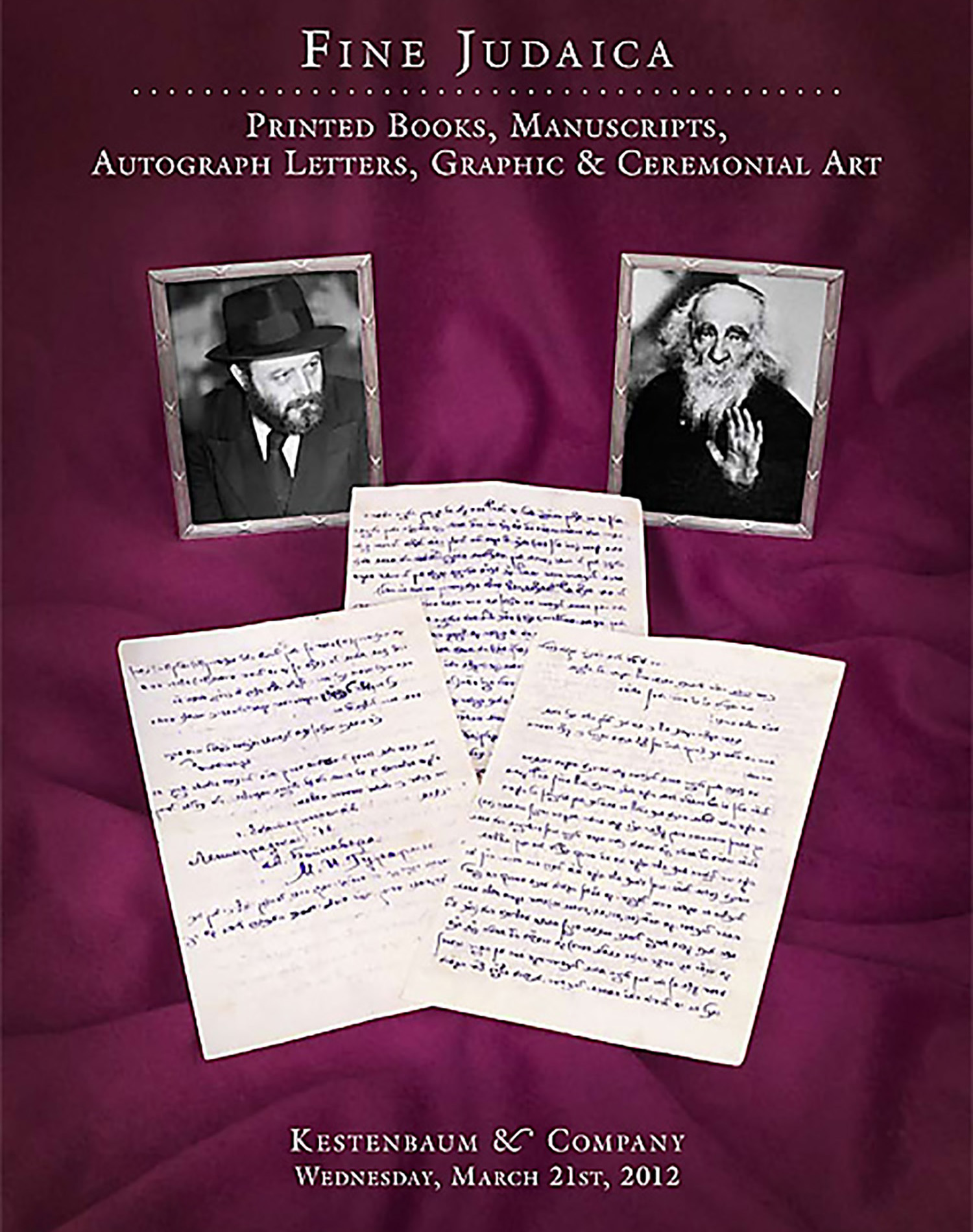Winston Churchill. Memorandum on British troop reductions in Palestine. British Government minute sheet, with War Office date stamp.

AUCTION 54 |
Wednesday, March 21st,
2012 at 1:00
Fine Judaica: Printed Books, Manuscripts Autograph Letters, Graphic & Ceremonial Art
Lot 292
(ZIONISM).
Winston Churchill. Memorandum on British troop reductions in Palestine. British Government minute sheet, with War Office date stamp.
London: 29th April 1920
Est: $7,000 - $8,000
Issued amidst World War I, the Balfour Declaration. expressed British government support for “the establishment in Palestine of a national home for the Jewish people.” By September 1918 the British had routed the Turkish enemy and secured Palestine entirely. It now became necessary to decide how to handle the peace, determining, among other things, whether or not to honor in practice the commitment in principle expressed in the Balfour Declaration. It was at the San Remo Conference, at which the European allies--Britain, France, and Italy--finally voted to implement the Balfour Declaration on 25th April 1920.
It was against this background, in the days following the vote at San Remo, that the present manuscript began making its way through the corridors of power at the War Office in London. From the frank internal exchange of views presented here, it now turns out that in the view of Winston Churchill, if no one else, the Arabs did not pose a serious security issue for a Palestine Mandate that had just undertaken to function as a Jewish homeland. Specifically, Palestine being “worthless”--having, as far as Britain was concerned, no strategic or economic value whatever--the number of British troops stationed there were, in Churchill’s opinion, not at all insufficient but, to the contrary, excessive.
It was not Churchill however who initiated this exchange. Addressed in the first instance to DCIGS and signed P. de B. Radcliffe, DMO, the document was only then forwarded by DCIGS to S of S, and returned, with comments in red, by S of S to DMO and DCIGS. On the verso of the sheet is an extended demurer addressed once more to S of S and signed “HW,” The protagonists represented by these abbreviations were the four key strategists of the time at the British War Office. DMO, the Director of Military Operations, was Major-General Percy Radcliffe (Percy Pollexfen de Blaquiere Radcliffe, later General Sir Percy Radcliffe). DMO’s boss, DCIGS, the Deputy Chief of the Imperial General Staff, was General Sir Charles Harrington Harrington. DCIGS’s boss was HW, Field Marshal Sir Henry Wilson, Chief of the Imperial General Staff; and S of S was Winston Churchill, the occupant from 1919-1921 of two Cabinet offices, Secretary of State for War and Secretary of State for Air.
The exchange includes the following comments:
* DCIGS: I attach a note from Col. Godwin on the situation in N. Palestine. He has first-hand experience of the area. The incidents that have occurred, while not necessarily alarming at present, are a timely reminder that we are not yet at peace in this country & that the.
G. O. C. Palestine has good reason for the protest he has made against the arbitrary reduction of his forces. --P. de B. Radcliffe, DMW, 26/4.
* DMO, DCIGS: This seems to show that a small force is capable of dealing with quite a large Arab gathering. I am sure the garrison ought to be reduced to a fraction of its present size & concentrated instead of pushing out in all directions in this worthless country. --WSC, 28-4.
* S of S: I am afraid that your line of argument is not a safe guide. Because 3 policemen in a police barracks in Galway beat off an attack of 300 Sinn Feins it does not follow that the wise thing to do is to reduce the garrison of Ireland by half. I am putting you up a separate paper on the question of the garrisons for Palestine, Egypt & Mesopotamia. --H. W., 1. 5. 20.
Perhaps the most fascinating aspect of this document is the extra dimension it adds to the essential enigma of Winston Churchill: how could somebody of such exceptional talent but such consistently poor judgment--it seems hardly controversial, with hindsight, to consider him wrong about Gallipoli, wrong about Ireland, wrong about the gold standard, wrong about the Abdication, and now wrong about the security needs of Palestine, too- could have risen to the occasion and shown the consistently good judgment that he did upon becoming Prime Minister in 1939.
